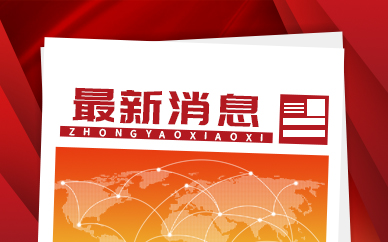A Chinese-brokered peace deal between the long-term foes Saudi Arabia and Iran has either shocked or delighted audiences worldwide, depending on their geopolitical standpoints. Anti-imperialists, people with a “peace first” attitude, especially directly impacted populations in West Asia, applaud the diplomatic success and hope for more to come, realizing what an economic powerhouse West Asia could become, with the extremely wealthy and resource-rich Arab nations, and the populous and highly industrialized Persian nation, if all the small and big armed proxy conflicts in the region can eventually be defused.
While further development remains not certain, an important foundation has been laid, when the leaders of Sunni and Shia Islam can shake hands and agree to talk. This development caught the West, with all its attention focused on Ukraine, by complete surprise. Even more shocking to many in the West is the fact that the rapprochement was mediated by patient and painstaking Chinese diplomacy. China, which is presented by Western media as a “dangerous”, “expanding”, or “threatening” actor with “no friends”, manages a diplomatic success that has eluded the Western former colonial powers for decades.
There’s no reason why this success should not be welcomed and celebrated by Europe and the US. While the timing may not have been predicted by many, the fact that China brought enemies together to talk peace is no surprise at all to anyone following Chinese diplomacy and political theory.
 (相关资料图)
(相关资料图)
First, judging from Chinese international activities, it is obvious that for China, more than for any other great power, peace is in its national interest: China’s global “expansion”, i.e. China’s increasing global footprints, is not achieved by territorial expansion, colonialism, or military adventure, but rather through trade at first, and investment later. Investment includes both state-level infrastructure build-up, and individual level migration and small-scale investment in local shops, trade businesses, or other SMEs. All these economic activities need peace to yield a return. None of them requires military intervention, regime change or color revolution.
Second, the political theory of China in recent years has developed a concept called “community of a shared future for mankind”. Although the English translation is not beautiful, its philosophical value is worth to be explored: As humanity is brought together on this planet, whether we want it or not, we can only work together to achieve the best outcome for as many people as possible.
The concept combines the universalist approach of recognizing “we all are humans” and therefore all hope for a good life, with an anti-colonial, anti-imperialist standpoint that allows people to find happiness according to their own culture, values and traditions. It is neither indifferent to the suffering of others, nor imposing one’s own values on others. The concept further analyzes this overarching goal in various fields of “community with a shared future” such as security, economy, environment, etc.; each of which can only be achieved when countries work together, while a nationalistic approach is bound to fail.
Take for example the security community with a shared future strongly supports the globally accepted principle that security of one side mustn’t be ensured by threatening another side. The success of bringing long-term enemies like Iran and Saudi Arabia together to agree to a peace which will benefit both is a great example of this concept. If Iran would successfully develop nuclear weapons, it may feel safe from any Saudi threats, but Saudi Arabia would be very worried, and vice versa. If Iran can receive credible security guarantees, the need for nuclear weapons is reduced, and all sides are safer in the entire region. Saudi Arabia may have historical and religious tensions with Iran, but also for Saudi Arabia it is much better when the region can end its proxy wars and prosper together. Realizing that both sides will live next to each other into the far future is the basic principle to discuss how to end hostilities, rather than “who is right”.
Third, the ethical values of China are in line with the diplomatic success: When peace is secured, economic development can thrive; when the economy prospers, people’s lives can be improved; when people get richer, they can afford higher priced goods which benefits industrialized countries like China and Europe. So, there’s a utilitarian aspect of Chinese national economic interest, but there are also humanist, socialist, and anti-imperialist aspects. Humanist, because humans around the world aspire to a life in prosperity and peace. Some people – typically Western NGOs – may want to preserve everything traditional in other countries. But to romanticize an underdeveloped, tribal society living in autarky rather than joining the world economy is a colonial concept of rich people who would like to see traditional people on their safaris and photo tours. China let’s partners decide for themselves, what forms of development they aspire for, which aspects of their culture they want to preserve, and how. Socialist or Communist because it supports the ideal of “workers around the world uniting” to improve the material lives of the working class. And anti-imperialist because China does not advocate one form of modernity to fit all societies.
One of the most appealing aspects of China for developing countries is the promise that they can modernize and industrialize without sacrificing their identities, cultures, and traditions. Unlike the Western approach of “value-based diplomacy”, with its one-size-fits-all understanding of democracy, its globalist NGOs expected to reach directly into societies that partner with the West, its corporations attempting to set the rules in developing countries, China proposes a world vision which allows nations to define their own boundaries of openness vs. preservation of traditions. There’s admittedly room for improvement, when underdeveloped nations lack the expertise to set strict enough rules when welcoming massive enterprises from China and elsewhere into their nation. But that’s a practical issue to be solved with education and negotiations, not a conceptual flaw.
Lastly, if we look at methodology, the community with a shared future for mankind doesn’t impose itself on other countries, but aims to set mutually agreed principles under which parties negotiate mutually acceptable outcomes. Such an approach takes a lot of time and patience. Various stakeholders and interest groups in each participating country must be taken into consideration and involved in complex negotiations. This needs a lot of manpower, as well as superior coordination and communication skills within a diplomatic corps organizing such negotiations. And it needs the ability to truly listen, not to what one wants to hear, but to what the other is trying to express.
It would be naïve to claim China never uses pressure or monetary incentives to protect its security bottom lines, but isn’t that a far more humanist use of one’s resources in diplomacy, compared with military intimidation, threats, and regime change operations by other great powers to protect their national interest? China offers benefits in exchange for voluntary cooperation. Nobody is forced by China to give up good relations with Europe or the US. This is a show of true strength and self-confidence. And it creates a diplomatic ecosystem within which enemies can find peace, for the benefit of all sides involved, and especially for the people living there.
In summary, Europe should not see this Chinese approach as threatening, because it doesn’t exclude Europe from participating. Neither Iran nor Saudi Arabia was asked by China to stop working with Europe. It’s high time Europe stopped isolating itself from the rest of the world, and worked together with China to build a peaceful and prosperous Eurasia. A diplomatic shorthand is “where the US goes, war follows; where China goes, peace and prosperity will come”. Europe should be clear, which one is closer to its own values.
标签:
-

High time for China, Europe working together to build a peaceful, prosperous Eurasia
AChinese-brokeredpeacedealbetweenthelong-termfoesSau
-

常山北明2022年净利润由盈转亏 系近10年首次亏损
受市场需求疲弱、原料成本高位、贸易环境更趋复杂、经济运行压力显著加大等因素影响,常山北明(000158 SZ
-

即时:早诊早治、防治结合 疾控专家提示重视防癌体检
新华社北京4月18日电(记者顾天成、李恒)4月15日至21日是第29届全国肿瘤防治宣传周。中国疾控中心慢病中心
-

世界说|美媒:民众对枪暴担忧与日俱增 两党互相“甩锅”却令其“失望透顶”|全球即时
世界说|美媒:民众对枪暴担忧与日俱增两党互相“甩锅”却令其“失望透顶”中国日报网4月17日电据美国哥...
-

【当前独家】俄罗斯堪察加半岛发生5.6级地震 震源深度120千米
中国地震台网正式测定:04月18日10时40分在俄罗斯堪察加半岛(北纬54 05度,东经159 90度)发生5 6级地震,
-

北京儿童医院专家:合理引导“发呆”利于孩子成长
北京儿童医院精神科副主任医师闫俊娟在临床工作中发现,有些孩子因为经常发呆而被家长带到医院就诊。这些孩
-

天天速讯:4月18日上海泰邦天然橡胶报价平稳
2023年4月18日,沪胶持续小幅震荡,幅度不大,国内市场现货胶价格普遍平稳。上海泰邦国际贸易有限公司天然
-

中字头,谁是成长最快企业?
企业成长能力是随着市场环境的变化,企业资产规模、盈利能力、市场占有率持续增长的能力,反映了企业未来的
-

app流量权限怎么设置方法_app流量|全球热推荐
1、指电信企业提供的流量仅限于指定的软件app进行使用。以上就是【app流量权限怎么设置方法,app流量】相关
-

每日精选:用 MoneyWiz 搭建个人预算系统,帮你守住每一分钱
用MoneyWiz搭建个人预算系统,帮你守住每一分钱,财务,财政预算,地方政府,个人预算系统,moneywiz
-

统计局:1-3月城镇固定资产投资同比增长5.1%
统计局:1-3月城镇固定资产投资同比增长5 1%
-

章源钨业:公司副产品锡精矿年产数百吨|快讯
从章源钨业了解到,公司钨矿的副产品主要是锡精矿和铜精矿,其中锡精矿年产量有数百吨。公司人士表示:...
-

国家统计局:一季度 全国城镇调查失业率平均值为5.5%
国家统计局:一季度,全国城镇调查失业率平均值为5 5%,比上年四季度下降0 1个百分点。3月份,全国城镇调查
-

统计局:1-3月中国固定资产投资107282亿,同比增5.1% 天天亮点
1-3月份,全国固定资产投资(不含农户)107282亿元,同比增长5 1%。其中,民间固定资产投资58532亿元,同比
-

焦点快报!手握舒适好用高颜值 雷柏V300W电竞双模游戏鼠标
最近给朋友物色了不少外设产品,也推荐了好几款的雷柏产品,受到好友的赞赏。看着身边朋友换装备的同时,我
-

马斯克牌“超大窜天猴”首射遭全球围观,竟突然“鸽”了…… 天天热讯
“马斯克的有史以来最强火箭终于要首飞了”,从16日到17日多家外媒纷纷在关注SpaceX公司“星舰”的发射...
-

今日报丨美国SpaceX公司取消“星舟”重型运载火箭首次轨道试飞
【环球网报道记者朱嘉琪】据英国《每日电讯报》刚刚消息,由于技术原因,由美国太空探索技术公司(SpaceX公
-

第一局巅峰?20胜三镇海港不仗义:亚冠成男足世界杯试金石
至于奥斯卡,在这场比赛中,就一个字——“玩”,一个有内涵的字,说明奥斯卡正处于本赛季首场中超找状...
-

环球热头条丨首发 | P A L Design :Funzy Play Family Club
生态、运动,抑或想像、艺术?我们希望儿童乐园不止是一座游乐场,更是可以被探寻、可以去感受的成长容器,
-

聚赛龙最新公告:东台聚合盈拟减持不超过4% 天天时讯
聚赛龙公告东台聚合盈拟减持不超过4截至2023年4月17日收盘聚赛龙301131报收于382元上涨294换手率298成交量6
X 关闭
X 关闭
- 每日播报!河南资本集团投资公司更名成立
- 柿饼怎么保存不坏能冻冰箱里吗 柿饼怎么保存
- 比较可靠的兼职平台(靠谱的兼职平台) 天天新要闻
- 中年男编辑辞职“跑步”创业,抵押房产发工资,如今年销售额近一亿|启点
- 中电港(001287)龙虎榜数据(04-17)|当前短讯
- 每日关注!贵州名家说达利①|何京:这是载入贵州历史的国际艺术大展
- 杭州一外卖小哥突然失联2天,同事急到报警!结果万万没想到|世界观察
- 疑似vivo S17系列配置曝光 加入长焦副摄支持80W有线充电 天天观焦点
- 世界热门:安彩高科:公司光伏玻璃客户主要包括晶澳、中环在内的国内前10大光伏组件企业以及国外组件企业
- 最资讯丨2023中国·成都天府绿道国际自行车赛落幕
- 今年非化石能源发电装机占比将过半
- 把好事实事做到群众心坎上
- 【这事办好了】我已拿到被拖欠的工资
- 世界热讯:龙井积极发展延边黄牛产业
- “红包”减五成:权益基金“囊中羞涩” 债基分红主力军_快报
- 智明弘成 湖北科技有限公司_对于智明弘成 湖北科技有限公司简单介绍
- 《赛博朋克2077》首发状态/全光追对比:视效细节显著提升 世界时快讯
- 海通证券:房地产现状如何?
- 河北省教育厅发布最新公告→ 世界聚焦
- 快讯:南京市交易团400余个展位亮相第133届广交会 首发首秀首展吸引国内外客商
- 当前焦点!“海右”路演大厅启用仪式暨首场项目路演举行
- 关于2023年5月27日PMI认证考试的报名通知
- 全球热推荐:Linux云服务器安装配置mongDB
- 天天速递!夏目友人帐主题曲王源_夏目友人帐主题曲
- 世界热点评!网贷逾期会影响征信吗
- 床头朝哪个方向好最吉利(床头朝哪个方向好?)_世界速看
- 午休一小时,“环保”带回家_每日视讯
- 商业运营基础知识_商业运营
- 霍建华林心如聚餐被偶遇,满脸通红眼神迷离,帮粉丝拍照无架子|全球观天下
- 微速讯:五一国内游订单量创5年来最高 较2019年同期增长约200%
- 世界今日报丨pet英语等级考试有什么用_pet英语等级考试
- 【环球报资讯】长江三峡工程的利与弊 三峡工程的意义
- 全球简讯:朝霞文化2022年净利3654.68万同比增长0.71% 产品销售增加
- 为员工买工作服怎么做分录_公司为职工购买的工作服应计入什么科目
- 快消息!2023北京书市在朝阳公园启幕
- 环球热资讯!广交会15日开展 参展企业数量创新高
- 重磅数据降幅超预期 美股三大指数收跌!分析师:继续看空美股
- 每日资讯:保护,是为了更好鼓励创新——聚焦版权商业化维权现象
- 创世封神之寻梦官网在哪下载 最新官方下载安装地址-精选
- 动态:云南双江“4·11”隧道塌方事故被困7人全部获救
- 【e汽车】高合汽车发布全新车型HiPhi Y官图
- 速递!泰林生物:公司灭菌机器人为公司自主研发产品 拥有多项专利
- c罗全名(C罗的全名是克里斯蒂亚诺·罗纳尔多)_世界聚焦
- 天津首届街舞霹雳舞大赛活动将于4月15日开幕|世界即时看
- 角鹰兽的蛋代码_角鹰兽的蛋
- 【独家焦点】援疆专家为伽师各族群众健康加“码”
- 全球热推荐:“逐级调研”,岂能成为“逐级要材料”?
- 扬杰科技:公司全系产品已经陆续导入车规级客户并批量交付
- 开封市鼓楼区人社局组织企业进校园开展宣讲专题活动 天天观点
- 天天讯息:《最终幻想16》官方高清截图公开
- 警惕“飞来横祸”!电动自行车电池室内充电又引发火灾|环球今日报
- 天天热点!纽约金价创历史第二高收盘,港A黄金股上演“狂飙”
- 连续5年 小燕子又来筑巢啦
- 玉米须如何降血糖_玉米须降血糖的方法
- 吴亦凡宋茜cp吧_吴亦凡宋茜接吻|当前简讯
- 4月13日基金净值:天弘安康颐丰一年持有混合A最新净值0.9847,跌0.25%_精彩看点
- 环球精选!华电国际电力股份(01071.HK):4月13日南向资金减持1656.6万股
- 3100万!皇马挖到瑰宝:防垮巴萨和切尔西,曼联出价1.5亿也不卖
- 户籍行政区怎么填
- 兄弟下(《兄弟:下》读后感) 焦点要闻
- 当前头条:4月13日招商资管智远成长灵活配置混合C净值下跌1.62%
- 最新:女子大闹剧院被抬离现场,现场观众拍手叫好,警方已介入
- 纳芯微推出单通道MLVDS收发器NLC530x系列,助力通信电力仪器仪表市场-世界百事通
- 远大医药全球创新激素纳米混悬滴眼液国内III期临床获批,有望填补激素眼用制剂市场空缺 世界热讯
- 世界快讯:给支部班子成员提意见_对支部工作和班子成员的意见建议
- 环球滚动:信息量巨大!银川重磅数据公布!
- 最高奖54.6万元/辆!北京燃料电池汽车连补4年!
- 【世界聚看点】石景山区气象台继续发布沙尘蓝色预警【IV/一般】
- Guizhou Echo | 这一波,贵州又圈“国际粉”了 关注
- 《文心雕龙》,那就是古代高分作文教材啊_播资讯
- 服务区域高质量发展 杭州城西科创大走廊科技金融服务联盟成立
- 成就网红株洲 需要一场全城剧本杀-环球即时看
- 今日热文:“文体活动丰富,村民更有精气神了”(帮扶县驻村手记)
- 第1视点|总书记调研特色种植业-看点
- 去年全国耕地净增加约130万亩
- 每日快播:dnf耳环任务是什么_需要怎么做
- 全民付收银台官网-全民付收银台
- 每日资讯:百亿私募一季度业绩红黑榜:结构化行情下分化明显 正圆投资夺冠 清和泉垫底
- 【聚看点】国家林草局启动应急揭榜挂帅项目
- 3月金融数据:实体需求回暖 信贷总量结构持续好转


